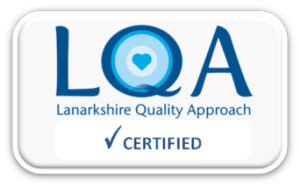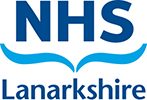Following Confirmation of Pregnancy Loss
Information for patients
NHS Lanarkshire Maternity Department
PIL.FOCONF.21_22027.L
Contacts
We are so sorry that you are facing this difficult and painful experience. Everybody reacts differently to the loss of their pregnancy. You may be surprised at your feelings and may need time to grieve. Some women are left feeling sad, depressed, guilty, angry or isolated. Others recover more quickly than they expected from their loss. There is no right or wrong way to feel.
This leaflet aims to give you some information about what happens next. It will explain the medications you will be offered and what the procedure may be like when you come back to hospital in a few days’ time.
It can be helpful if you take time to think and talk things over with your partner, or with someone who can offer support. You may find it difficult to take in all the information you have received. If you need to, talk again with the doctors and midwives who are caring for you. If you feel you need additional support whilst making your decision, please be assured that you will be allowed all the time you need to make the decisions that feel right for you.
What happens now?
If you’ve been pregnant for more than 12 weeks it is necessary to induce labour in order to deliver your baby. The treatment we currently recommend involves the use of a drug called Mifepristone. A midwife will give this to you as a tablet you would swallow approximately 36 to 48 hours before you’re admitted to hospital. Mifepristone works by blocking the effect of one of the pregnancy hormones; this prepares your womb for the next stage of treatment. You may take paracetamol or co-codamol to ease any pain, but not aspirin or ibuprofen as these interfere with the treatment. If you are already taking medication, please tell the midwife or doctor before the treatment. If the pain is severe, please do not hesitate to contact Maternity Triage on 01698 366210.
You should not drink alcohol or smoke for at least 4 days after taking Mifepristone. If you cannot avoid smoking, please try to smoke less on those days. We can also offer you nicotine patches if you feel this might be helpful. You can spend the 2 days between taking Mifepristone and your visits to hospital in a way that feels right for you whether that’s at home or at work. There is a small chance that the miscarriage may occur at this stage but it is not common. If you do have vaginal bleeding during this time, you should use sanitary pads instead of tampons to reduce any risk of introducing infection.
If you are struggling with sickness or would like an anti-sickness tablet at the time of the Mifepristone medication being given, please ask your midwife. If you are sick within two hours of taking the tablet, please contact the hospital as you may need to return for another tablet . If you are unable to keep food or fluids down, please contact Maternity Triage.
Most women do not experience side effects from Mifepristone, however, as with all medicines, these can occur. These can vary from person to person but may include:
- vaginal bleeding
- cramps/period type pains
- nausea (feeling sick) and vomiting (being sick)
- headaches
- skin rashes
The doctor will discuss all the possible side effects and if you decide to go ahead, you will be asked to sign a consent form.
This states that you agree to have the treatment and you understand what it involves.
What happens when I go home?
It is unlikely, but possible, that you may have some tightenings or labour pains before you come back to hospital to be admitted. If you are worried about anything or if you have any pain or bleeding do not hesitate to telephone Maternity Triage. There are midwives and doctors on duty 24 hours a day who will be able to advise you and we will admit you to hospital sooner than planned if that is required.
What happens next?
On the morning of your admission to hospital you will usually be asked to come to the Labour Ward at 10am. A midwife will admit you, ask you about any bleeding or pain that you may have had over the last two days and listen to any questions and concerns you may have. If you have had any other symptoms, please mention these to the midwife. The midwife will need, with your consent, to perform a vaginal examination and to place small tablets containing a drug called Misoprostol into your vagina next to the neck of the womb. This will help to soften the neck of the womb and may cause your uterus to begin to contract. After three hours, if you have not delivered your baby, you will be given further vaginal tablets. If necessary you will be given further tablets every three hours until delivery, up to a maximum of five doses in 24 hours. During your treatment it is likely that you will feel the waters that surround the pregnancy leaking. Fluid may leak from your vagina for some time.
At some stage you will begin to experience regular contractions. Some women find this part of this process very painful and others less so. The midwife will discuss with you the types of pain relief available to you and you can decide what you feel will help you personally. Unfortunately, there is no way of predicting how long this part of the process will last, some women deliver within a few hours, others can take much longer. The use of Mifepristone beforehand shortens the process of inducing the labour in these circumstances. If you have previously had a Caesarean Section, we may have to use lower doses to prevent causing any damage to the uterus which could lengthen the process.
Once you have given birth, depending on the length of your pregnancy, you will be given an injection to help slow down any bleeding and help the placenta (after birth) to come out. Occasionally the placenta or afterbirth does not come away with the baby, and if this happens the doctor will then discuss with you the best way to remove the placenta. There is a chance that this will involve being put to sleep (general anaesthetic) while the placenta is removed in theatre. This procedure does involve a small chance of causing problems such as having an infection in the days following the procedure or damage to the womb during the procedure. The doctor will discuss this with you in more detail if the procedure is recommended to you and you will need to sign another consent form for the surgical procedure to take place.
It is probably best to expect to stay in hospital overnight and to bring with you some nightclothes; wash things; sanitary pads; comfortable clothes and perhaps some reading material for the early stages; please also bring any medication you take or may need. Your partner or another person of your choice is welcome to stay with you throughout if that is what you wish.
Seeing and/or spending time with your baby
When your baby has been delivered it is entirely your choice whether you would like to see or hold him or her, or not. We will respect your wishes and support you with either choice. Many parents have found that seeing or holding their baby has made him or her more real to them and this has helped in coming to terms with their loss. You should be aware that your baby may be much darker in colour than a baby delivered later into a pregnancy.
The midwife responsible for your care will talk to you about your care after the delivery. You may want to discuss ways in which you can remember your baby. Everyone experiences different feelings and emotions and you must do what you feel is right for you.
You may feel you would like to:
- See or hold your baby
- Have a naming ceremony or blessing with the hospital Chaplain
- Have photographs of your baby
- Have a memory box
- Have footprints & handprints as a memento
- Have a ward issued birth certificate
- Have your baby’s name added to the Book of Remembrance
If you are uncertain, we can take the photographs, handprints and footprints, and store them with your notes so they are available if you decide later that you wish to have them.
On occasions when a baby is delivered under 22 weeks, there can be involuntary movements and muscle twitching. We understand that this can be very distressing; however this is not a sign of your baby being born alive. Many parents ask to know the sex of their baby, this is very difficult to to tell for definite before 22 weeks as the genitalia can look similar. If you are told the sex it is important that you are aware that it is in the opinion of the person looking and not definite. If you opt for a post mortem examination the sex will be determined in the report.
What happens to my baby and placenta?
A post mortem examination of your baby may give us information that will help to explain the possible causes of your pregnancy loss and the chances of whether it may happen again in a future pregnancy. However, sometimes the cause cannot be found. A midwife or doctor will discuss this with you while you are in hospital, and explain what a post mortem involves. The decision of whether or not to carry out a post mortem is yours. We will not do one without your consent.
Histology testing can also be done on your placenta by looking at small parts of it under a microscope; this can give us some limited information about the possible cause of your loss and the likelihood of it happening again if it is related to the placenta’s function or development.
Making funeral arrangements for your baby can be overwhelming at what is a very distressing time. It is important to consider all options and take time in making the choices which are right for you and your baby. Any specific personal, cultural or religious needs can be discussed with your midwife.
You might like to place your baby in the hands of your own undertaker who will arrange a private cremation or burial. (A private burial can incur costs).
If you wish, University Hospital Wishaw can arrange for your baby to have a cremation or burial and as with the private arrangements, you can be completely involved.
Further information is available in the leaflet ‘Options and Choices for Burial and Cremation Following Miscarriage, Stillbirth or Neonatal Death’ which your Midwife will supply you with after the birth.
How long you stay in hospital is very much your choice. Some women prefer to go home as soon as possible, others like to stay and rest for a while. We have a large, private room called the Ohana Suite that has been specially designed for families who have lost their baby; it allows you to have more time with your family or friends who will be able to visit to support you and make memories with you and your baby. At times visitor restrictions may be in place, your midwife will be able to advise you on these.
What happens when I go home?
When you are ready to go home the midwives will discuss with you how often you would like to be visited by the Community Midwife.
An appointment will also be made for you to see your Consultant – this meeting is usually offered around 12 weeks after delivery, but may be later according to your specific circumstances or the type of investigations requested. If you have not received a date for your meeting after 16 weeks, please get in touch with the Bereavement Specialist Midwife, who will find out why you have not received an appointment.
At the meeting with your Consultant they may discuss pre-conception care prior to a future pregnancy and a management plan for your care that may be put in place in that pregnancy.
If you do conceive again you can contact the Early Pregnancy Unit on 01698 366217 for a reassurance scan at around 8 weeks into your pregnancy.
You can contact your GP to arrange a medical certificate for time off work following your loss if your employer requires this. You can also arrange your 6 week postnatal check up with your GP to ensure your physical and emotional wellbeing following the birth.
You should contact Maternity Triage on 01698 366210 following discharge home if:
- you have severe pain which is not relieved with simple pain relief tablets
- you feel feverish , experience chills or shivering
- you have heavy bleeding
- you have a vaginal discharge that smells bad
If you have any concerns or need any further information, then please do not hesitate to contact Maternity Triage.
The perinatal mortality review process
We would like to reassure you that we take any death at University Hospital Wishaw very seriously and we review our care in detail when a baby unexpectedly dies. If your baby died after 22 weeks gestation the care you received during your pregnancy and delivery and after your baby was born will be discussed in the coming weeks at a team meeting which will include obstetricians (doctors who care for women in pregnancy), midwives and a neonatologist (a doctor who looks after newborns). If necessary a paediatrician (a doctor who looks after children) and a pathologist (a doctor who performs investigations after someone dies) will also be part of discussions.
It is important for us to examine your care in detail so that we can give you as much information as possible about what might have caused your baby’s death. Understanding what happened also helps us put plans in place to improve care, where we can, for parents and families in the future.
We would like to include your views about your care as part of our hospital team meeting and the review of your baby’s death.
We would like, therefore, to give you the opportunity to raise any issues you’d like to now. You do not have to do this; it is entirely your decision. But if you would like there are several ways to let us know about your experience or any questions you may have, a letter will be sent to you from the bereavement specialist midwife in the next few weeks with details of how you can submit any questions or comments you may have.
Support services available to you
The Bereavement Specialist Midwife will provide on-going support throughout the first year following your pregnancy loss
and can help answer questions that you have about the treatment and care you have experienced. Tel No: 01698 361100 extension 5732.
There is an answering service if she is unable to take your call.
The Spiritual Care and Wellbeing Team are a 24 hour on-call service and can be contacted via the Hospital switchboard on: 01698 361100.
Further advice and support is offered by:
Sands – Telephone: 0808 164 3332, Email: lanarkshire@sands.org.uk
Simba – Website: www.simbacharity.org.uk, Email: glasgowsimbacharity@gmail.com
Held in Our Hearts – Telephone: 0131 622 6263, Website: www.heldinourhearts.org.uk
Baby Loss Retreat – Telephone: 07868 557343, Website: www.babylossretreat.org.uk
Miscarriage Association – Website: www.miscarriageassociation.org.uk
Twins & Multiple Birth Association – Website: www.tamba.org.uk/bereavement
Muslim Bereavement Support – Telephone: 020 3468 7333, Email: info@mbss.org.uk
Tommys – Telephone: 0800 0147 800, Website: www.tommys.org
Antenatal Results and Choices – Telephone: 0845 077 2290, Website: www.arc-uk.org
Child Bereavement UK – Website: glasgowsupport@childbereavementuk.org

Pub. date: October 2021
Review date: October 2023
Issue No: 02
Reference: PIL.FOCONF.21_22027.L
If you need this information in another language or format, please e-mail:




